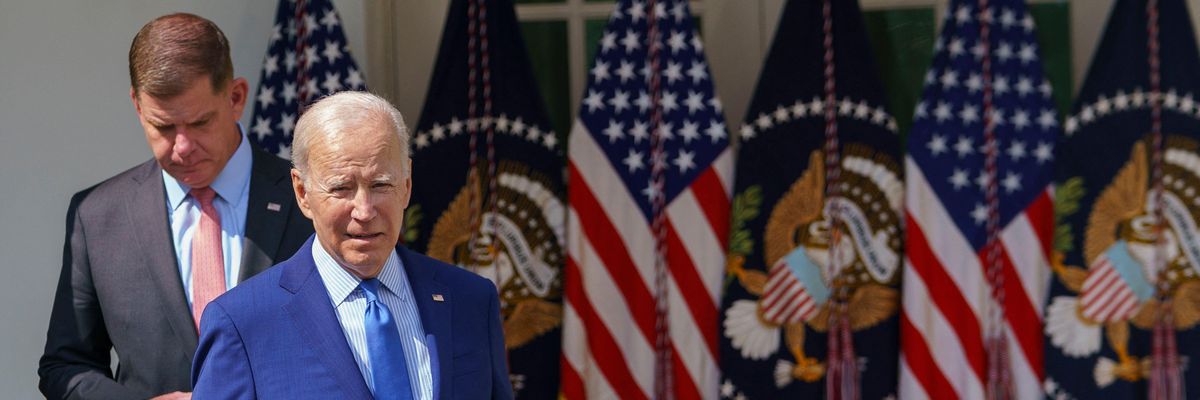A nationwide rail strike has been averted for now. A new agreement grants railroad workers an additional paid day off and the ability to attend medical appointments without penalty. (The agreement now must be ratified by the workers.)
A strike could have crippled the economy at a particularly vulnerable moment.
A strike could have shut down nearly a third of the country's freight and about half of commuter rail systems (which run at least partially on tracks or rights of way owned by freight railroads).
In other words, a strike could have crippled the economy at a particularly vulnerable moment, when inflation is still soaring. And a strike would come at an especially awkward political moment, less than two months before the midterm elections.
What can we learn from this near economic disaster? Unlike most management-labor impasses, this one wasn't solely around wages. It was also around sick time and penalties for missing work.
Like so many workers deemed "essential" during the pandemic, the engineers and conductors who drive the nation's freight trains have been fed up. Their work schedules are unpredictable and inflexible. They've been penalized for taking days off when they're sick or tending to a family emergency.
Like most of us, they want a better quality of life--and they feel, with justification, that they deserve it.
The railroads have agreed to a 24 percent increase in wages. Good, but they should have agreed long before this.
Twenty years ago, the four leading American freight carriers--SX, KC Southern, Norfolk Southern and Union Pacific--earned average operating margins of about 15 percent. Now, their margins are closer to 40 percent. Twenty years ago, the four railroads spent some $8.7 billion on worker compensation and benefits to generate $25.6 billion. Twenty years later, they spent about 10 percent more on worker compensation and labor--but their revenue has nearly doubled.
Until last night, railroad executives had refused to budge on a workplace attendance policy that can only be described as draconian. Railroad conductors and engineers were continuously on call (outside of paid vacation and personal leave days based on seniority). When told to report to work, they were given just 90 minutes to two hours.
Like many employers across America--hospital executives, school systems, Amazon and Starbucks--railroad management didn't get it. They didn't understand the importance to working people of having some control over when and how they work.
And like so many other industries, the underlying railroad problem has boiled down to soaring demand and unmitigated corporate greed.
Since the pandemic, cargo volumes have soared to record highs. But over the last six years, freight railroads have pared back their workforce by about 30 percent to reduce costs and increase profits.
They've also been running fewer and longer trains, and waiting until trains are full before leaving terminals.
As a result, the railroads have demanded that their workers put in more hours, but given them almost no notice of when.
Hopefully, now, we'll avoid a railroad strike. Congratulations to the Biden administration for helping broker this agreement.
But let's make sure the lesson here is learned, not just by rail management but across the nation in every industry: Workers need and deserve higher wages and better working conditions--which includes more control over their jobs.
